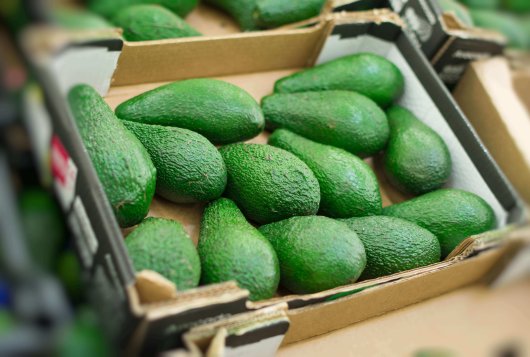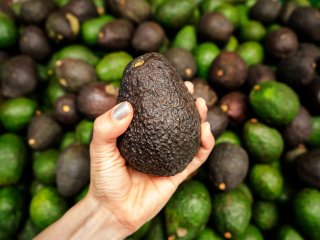
Research Results
The effects of temperature on avocado ripening
As part of the GreenCHAINge project, Wageningen University & Research investigated the effects of temperature on the ripening process of avocados. When avocados ripen, they rapidly become less firm.

Objective
Study 1: softening of avocadoes
Increasing the avocado temperature from 5-7°C during transport to 16°C upon arrival was found to be sufficient to trigger ripening, with higher temperatures speeding up the softening process.
A too high storage temperature – above 24°C for instance – was, however, found to lead to a deterioration in quality, such as vascular and pulp discoloration. The daily loss of firmness (softening speed) of avocados at different ripening temperatures over four days is summarised in the figure below.

Study 2: shelf life and temperature
Cooling down avocados also slows down the continued softening process after they are ripe. Reducing the temperature just after the ripening protocol is applied and during distribution to retail outlets permits the softening rate to be slowed down again, extending the shelf life of RTE avocados.
The effect of low storage temperature at an outlet display was also studied. The shelf life of RTE avocados was extended by three to six days when these were stored at 8°C instead of 18°C (see table above). Shelf-life performance is given in relation to the RTE percentage in a batch of avocados. More RTE avocados in a batch translates into a lower shelf-life performance for that batch. Storing RTE avocado at outlet displays at a lower temperature also limited other defects such as dehydration and vascular and pulp browning.